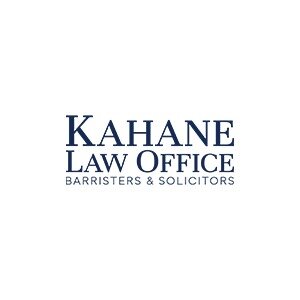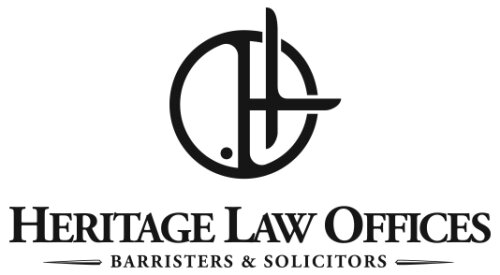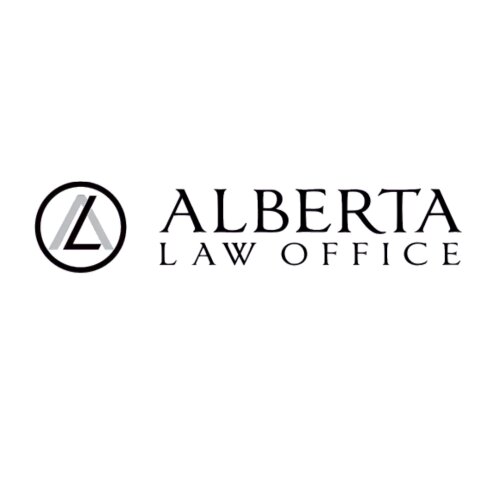Best Divorce & Separation Lawyers in Edmonton
Share your needs with us, get contacted by law firms.
Free. Takes 2 min.
Free Guide to Hiring a Family Lawyer
List of the best lawyers in Edmonton, Canada
About Divorce & Separation Law in Edmonton, Canada
In Edmonton, Canada, the process of divorce and separation is governed by both provincial and federal laws. The Divorce Act, a federal law, regulates divorce, the division of property, and matters concerning child custody and spousal support. It applies to marriages that have broken down and where at least one party has resided in the province for a minimum of one year. On the other hand, Alberta's Family Law Act covers matters of property division between common-law partners and custody and access of children in both common-law and married relationships.
Why You May Need a Lawyer
A lawyer can be crucial in navigating the complexities of divorce and separation processes. This could involve multiple issues including deciding on child custody, spousal or child support, and division of assets and debts. Lawyers can mediate between the two parties, ensuring that the decisions made are fair and in accordance with the law. If the divorce or separation disputes escalate to court, an experienced lawyer can present your case, helping you to achieve a suitable outcome.
Local Laws Overview
In Edmonton, you can file for divorce if you and your spouse have lived separately for at least one year, or if there is proof of adultery or physical or mental cruelty. The law aims to allow a fair division of matrimonial property. If you and your partner cannot agree on the division of assets, the court will divide them. Child custody determination considers the best interests of the child. Spousal support is not automatically granted and is based on several factors including the length of the marriage, the roles of each party during the marriage, and the needs and means of each party post-divorce.
Frequently Asked Questions
Question 1: Can I file for divorce if my spouse doesn't agree?
Yes, you can file for divorce in Edmonton even if your spouse disagrees. The consent of both parties is not required to proceed with the divorce process.
Question 2: How long does a divorce process usually take in Edmonton?
The complete divorce process can take anywhere from a few months to a few years, depending on how amicable the spouses are and the complexity of the issues involved.
Question 3: How is child custody determined in Edmonton?
In Edmonton, child custody is determined based on the best interests of the child. The court assesses a number of factors including the emotional ties between the child and the parents, the parents' willingness to provide the child with guidance and education, and the stability of the family environment.
Question 4: Is spousal support always awarded in a divorce?
No, spousal support is not automatically awarded in a divorce in Edmonton. It depends on a variety of factors, including the financial need of the requesting spouse, the ability of the other spouse to pay, the living standards during the marriage, and the duration of the marriage.
Question 5: How is property divided in a divorce in Edmonton?
The property is divided equitably among the couples, taking into consideration each party's contribution to the marriage and the welfare of the children. The courts have the discretion to vary this distribution if it is deemed necessary for justice to be carried out.
Additional Resources
Your first point of call should be to contact a reputable and experienced family lawyer in Edmonton who specializes in divorce and separation. The provincial government's Family Justice Services also offers a host of resources. Organizations like Alberta Legal Information Society and Legal Aid Alberta provide a wealth of information for those dealing with divorce and separation.
Next Steps
If you need legal assistance in divorce and separation, firstly, gather all relevant financial and personal documentation. This includes income and tax documentation, property deeds, and other financial records. Secondly, consult with a family lawyer who can provide guidance on legal rights and responsibilities. If you cannot afford a lawyer, consider reaching out to organizations that offer legal aid. Always remember, your well-being and the best interests of your children should remain a priority throughout the process.
Lawzana helps you find the best lawyers and law firms in Edmonton through a curated and pre-screened list of qualified legal professionals. Our platform offers rankings and detailed profiles of attorneys and law firms, allowing you to compare based on practice areas, including Divorce & Separation, experience, and client feedback.
Each profile includes a description of the firm's areas of practice, client reviews, team members and partners, year of establishment, spoken languages, office locations, contact information, social media presence, and any published articles or resources. Most firms on our platform speak English and are experienced in both local and international legal matters.
Get a quote from top-rated law firms in Edmonton, Canada — quickly, securely, and without unnecessary hassle.
Disclaimer:
The information provided on this page is for general informational purposes only and does not constitute legal advice. While we strive to ensure the accuracy and relevance of the content, legal information may change over time, and interpretations of the law can vary. You should always consult with a qualified legal professional for advice specific to your situation.
We disclaim all liability for actions taken or not taken based on the content of this page. If you believe any information is incorrect or outdated, please contact us, and we will review and update it where appropriate.











